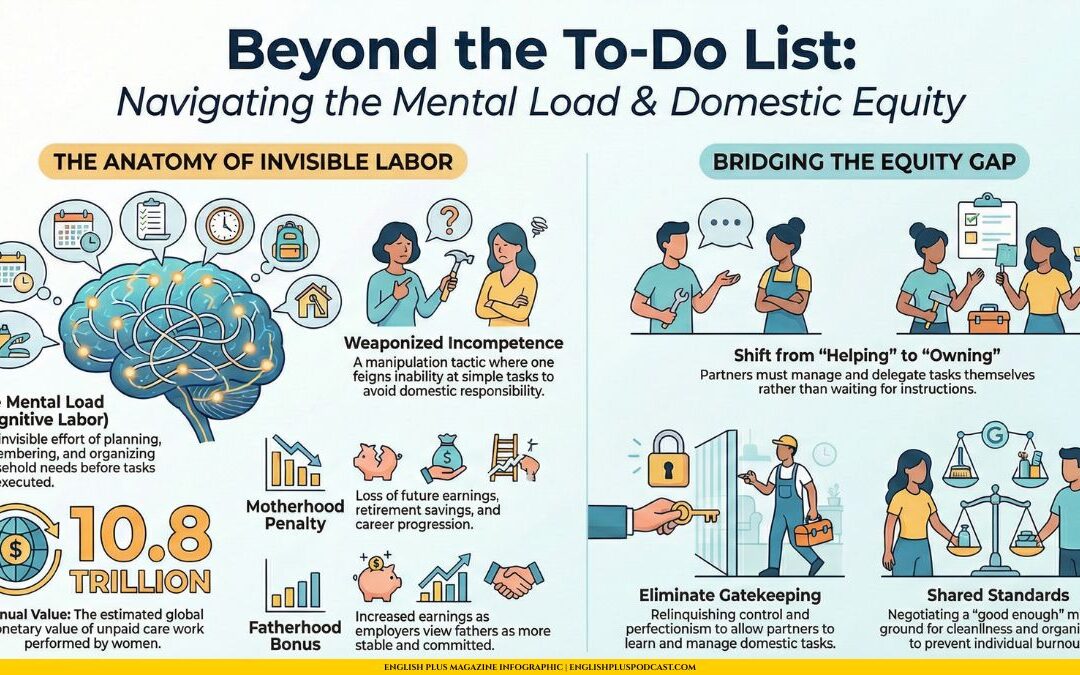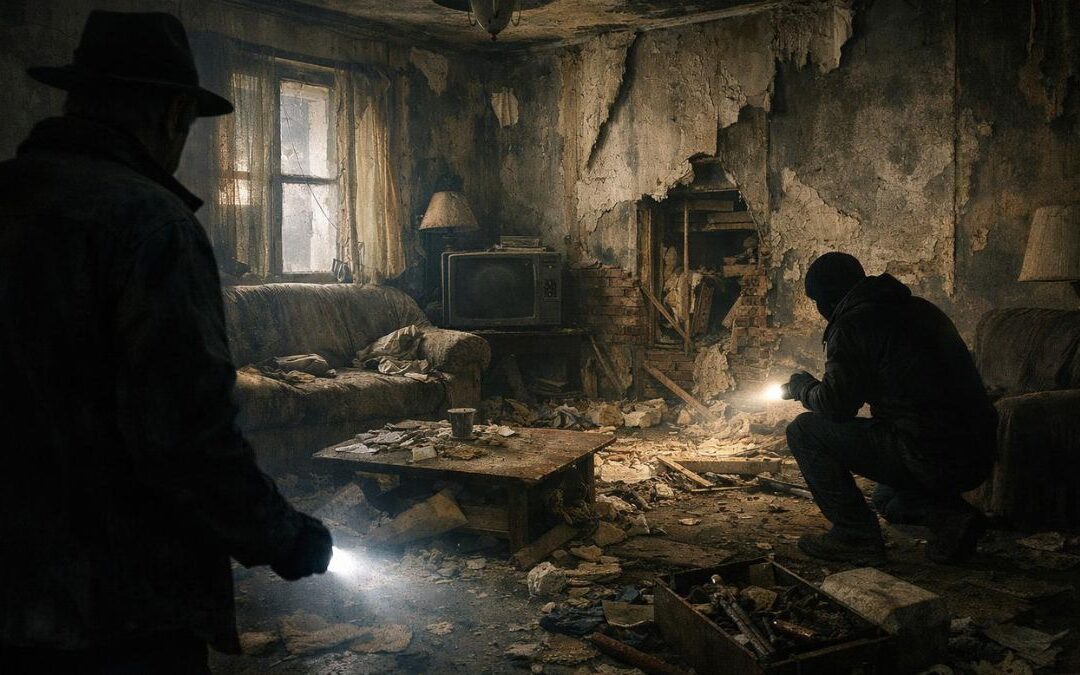SparkCast Episode
The SparkCast episode is not just a reading of the article below; it’s a lively discussion based on the topic of the article, so you don’t want to miss it!
[ppp_patron_only level=5]
The Age of Shared Memory_ Utopia or Dystopia Transcript: Click to Open
The Age of Shared Memory Utopia or Dystopia
Imagine for a moment, um, a world where explaining how you feel or what you experienced, well it just isn’t a struggle anymore. What if you could, like, literally just lend someone your memory? That amazing sunset you saw. Mm-hmm.
Or maybe that awful feeling of grief. Just, poof, they get it, they understand. Instantly.
But then, okay, what if perfect understanding was possible between, like, every single person? Right. Would that be amazing? Yeah. You know, truly empathetic world.
Or, or what happens to you if all your experiences, your wins, your fails, your really private stuff. Mm-hmm. Suddenly isn’t just yours anymore.
Yeah, where’s the line? And could love, could trust, even really work in a world where, well, there are no secrets left. That’s a huge question. And maybe the scariest bit.
Mm-hmm. Who gets to control the truth? Yeah. Like the actual past, if memories can be bought or sold, or even, you know, rewritten.
Chilling thought. Welcome to a new Sparkcast from English Plus Podcast. So today we’re doing something pretty extraordinary.
We’re taking a deep dive into this idea. We’re a world where memories can be shared. It’s a fascinating concept.
Totally. And our mission, really, is to kind of unlock the door of this world, peek inside, and see what might be waiting. The good, the bad.
The beautiful, the chaotic. And the, frankly, terrifying possibilities this kind of tech might bring. So, yeah, expect some surprising ideas, some really intriguing scenarios as we unpack this.
Sounds good. Okay, so let’s unpack this. Let’s start with the ideal scenario.
The best case. Imagine the sheer power of perfect understanding. Sounds almost utopian, right? It absolutely does.
I mean, the potential for just unprecedented empathy is, well, it’s profound. How so? Well, think about doctors, right? Truly feeling a patient’s pain, not just hearing about it. Imagine the care that could come from that.
So much more compassionate. Probably more effective, too. Okay.
Yeah, I can see that. Or judges. Experiencing the actual remorse of someone who committed a crime.
Or the trauma of a victim. That kind of direct, unmediated understanding. It could lead to a kind of justice we can barely imagine now.
And then there’s history. Imagine sharing the memory of astronauts walking on the moon. Oh, cool.
Or scientists having that Eureka moment. Artists creating something incredible. History wouldn’t just be something you read about.
It’d be something you live. Exactly. A living, breathing experience.
Accessible to everyone. That old saying, walk a mile in someone else’s shoes. It stops being a metaphor.
It becomes real. Something you can actually do, share. It could just flood the world with connection.
It’s almost hard to wrap your head around. What a massive shift that would be. A world where empathy is just the default setting.
Not the exception. It really makes you pause and think about how things are now, doesn’t it? It really does. What an aha moment for humanity that could be.
But, okay, if perfect empathy means total transparency. Yeah. That leads straight to the next question, right? Right.
The self. Exactly. What happens to our unique identity? Our sense of me? If everyone can access anyone’s memories.
Yeah, and this is where it gets really, really interesting. And complex. Oh, so.
Well, if you think about it. What makes you, you? It’s largely your unique collection of experiences, isn’t it? Oh, yeah. So, yeah.
Your memories, your feelings about them. So, if those are suddenly shared. Does the whole concept of an individual self even hold up? Your triumphs, your private jokes, your deepest shames.
If they’re all in this, like, collective pool. Who are you then? It’s been unsettling. It is.
And some people argue your personality could start to, well, bleed into others. Your opinions, your beliefs subtly change by memories you’ve borrowed. So, you wouldn’t even know what’s originally you.
Potentially, yeah. Yeah. Would we end up as some kind of, you know, harmonious collective? Yeah.
Or, more worryingly, just a sort of bland, homogenous soup of consciousness? Well, a slightly soup of consciousness. Okay. Raises a huge question.
Is perfect understanding actually worth losing the very essence of who you are as an individual? Because true self-identity might fundamentally need unshared stuff. That private inner world. Exactly.
So, the quest for connection might, kind of ironically, dissolve the very thing it’s trying to connect. That does sound like a really stark trade-off. Losing your individuality.
Yeah. But, is there another way to look at it? Could that collective thing actually be, I don’t know, a step up? Transcending the ego, sort of. That’s definitely an argument some make.
Yeah. The idea of a superorganism consciousness where individual worries kind of fade away in favor of a shared goal. Leading to more progress, maybe.
Possibly greater collective good, faster innovation. It really boils down to a deep philosophical split, doesn’t it? What do we value more? The unique spark of the individual or the potential power of the collective? Yeah, that individuality question is massive. Okay, but let’s shift gears a bit.
Let’s get practical. And maybe a little dystopian. Okay.
If memories can be shared, surely they can be bought and sold. Oh, absolutely. That seems almost inevitable, doesn’t it? Yeah.
You can just picture the marketplace now. Experience downloads. Like what? Like climbing Everest.
But you don’t leave your sofa. Just download the memory. Or skills.
Imagine downloading the memories of a master chef overnight. You wake up knowing how to cook like, I don’t know, Gordon Ramsay. Laughs.
Okay. Though maybe minus the shouting. Chuckles.
Yeah, you might get the temper downloaded too. Maybe choose a calmer chef. But seriously.
Right. Beyond the cool or funny stuff, there’s a dark side. A very dark side.
You could have things like trauma tourism. People paying to experience someone else’s worst moments just for kicks. Oh, that’s grim.
It is. Or corporations implanting memories, making you think you want their product, creating desires you didn’t have before. So like subconscious advertising taken to the extreme.
Exactly. And governments. Think about it.
Overriding the memories of people who disagree with them, creating a perfectly compliant population. That’s terrifying. It really is.
The key insight here isn’t just that memories become products. It’s that truth itself becomes a product, manipulated by whoever has the money or the power. So privacy.
Privacy becomes the ultimate luxury. Maybe just a memory itself. A relic of a bygone era.
Wow. Engineering desire. Rewriting history in people’s heads.
But, I mean, how easy would that be? Could you really just completely overwrite someone’s core memories? Wouldn’t there be some pushback? Some feeling that something’s wrong? Well, based on what some analyses suggest, it could be incredibly hard to detect, especially if it’s done subtly. How so? It might not be about just erasing old memories, but more about weaving new false ones seamlessly into your existing ones. Oh, okay.
So the line between what’s genuinely yours and what’s been borrowed or even implanted, it just blurs. It could potentially disappear altogether. Leaving you with no way to resist.
Very little, perhaps. Okay, let’s bring it back to something even more personal. Our relationships.
You know, the closest ones. So much of love of connection is built on trust. Right.
And that slow reveal of who we are. That delicate dance, yeah. So what happens to that, that whole process, when everything about the other person is just instantly known? It’s another huge area where this gets incredibly complicated.
The impact on intimacy, on trust. It would be profound. How do you mean? Well, you could instantly know everything.
Everything about your partner. Their past loves, their secret anxieties. Every single mistake they’ve ever made.
Hmm. So does that lead to, like, absolute perfect intimacy? Or does it just kill the mystery? Kill the romance that kind of draws people together in the first place. Yeah, I wonder.
And trust. How could you ever be sure a feeling was real, genuinely theirs? Or just a product of a memory you both shared? Or something they experienced secondhand? Or something implanted, even. Or even implanted, exactly.
And forgiveness. Think about forgiveness. Okay.
It becomes immensely complex. You don’t just have to forgive someone for what they did. You’d potentially have to live with the perfect, crystal clear, vivid memory of their betrayal.
Playing over and over. As if it happened to you. That kind of profound knowledge, it might actually destroy true connection, paradoxically.
Wow. Yeah, that’s a lot to take in. It really makes you question how our closest bonds would even function.
Or if they’d survive at all. Would you really trade that mystery, that slow discovery, for just total, instant knowledge? Even in your most important relationships. Tough one.
Okay, so shifting again. In this world of shared memories, there’s another really critical question that pops up. Who decides what’s real? Ah, the curators of truth.
Yes. Who decides which memories are the official ones and which ones are, I don’t know, fake news memories? Exactly. Because history could be rewritten.
Literally. Instantly. Powerful leaders or groups could just erase memories of inconvenient events.
Genocides, maybe. Or implant false memories of some glorious past that never actually happens. Objective truth crumbles.
Pretty much. It gets replaced by whatever narrative is shared the most widely. Or maybe shared most forcefully through implantation.
So you’d have, what, memory police? You could end up with a whole new class of powerful people. Memory editors, maybe. Archivists.
They’d hold unbelievable power. They’d basically be the gatekeepers of reality itself. What’s really fascinating, or maybe terrifying, is how the fight for the future would become a fight for control of the past.
Because the past wouldn’t be fixed anymore. It’d be up for grabs. It’s almost impossible to imagine society working like that if truth itself is just bendable.
Uh-huh. A shared story controlled by a few people. It’s a disturbing thought.
What would you even do? How would you protect objective truth if it could be altered inside your own head? So ultimately it feels like a world of shared memories is, well, it’s a world without secrets. Fundamentally, yes. And while part of you might think, oh, liberating, no more hiding, secrets often protect us, don’t they, in ways we don’t always realize? They really do.
You could think of them as like these private gardens inside us, places where we can be our truest selves, maybe our most vulnerable selves, without judgment. Sharing every single memory would be like living in a house with absolutely no walls. You’re constantly exposed, exposed to everyone’s judgment, everyone’s in for us all the time.
That sounds exhausting. Yeah. And maybe dangerous.
It forces that fundamental question again, really. Is perfect understanding, perfect connection, truly worth the price of absolute total vulnerability? It’s a tradeoff that seems to go right to the core of what it even means to be human, doesn’t it? It absolutely does. Makes you think, though.
If you could share just one memory, one single memory with the entire world to try and create more understanding, what memory would you choose? Hmm. That’s a great question. And maybe flip it around.
If you could receive one memory from anyone, anywhere, anytime, what would you most want to experience? Something to ponder, maybe. And this is another Sparkcast from English Plus Podcast. Don’t forget to check out the full article on our website, englishpluspodcast.com, for more details.
Thank you for listening. Stay curious and never stop learning. We’ll see you in the next episode.
[/ppp_patron_only]
What If Your Mind Was an Open Book?
Have you ever desperately tried to explain a feeling or an experience to someone, only to be met with a blank stare? You search for the right words, but they fall short. “You just had to be there,” you say. But what if they could have been? What if you could literally lend them your memory of that sunset, that first kiss, that moment of gut-wrenching grief? Today, let’s unlock the door to a world where we have shared memories, and peek inside at the beautiful, chaotic, and terrifying possibilities.
The Empathy Revolution
Let’s start with the utopia. Imagine the power of perfect understanding. A doctor could truly feel a patient’s pain, leading to more compassionate and effective care. A judge could experience the remorse of a criminal or the trauma of a victim, leading to a more profound form of justice. We could share the memories of astronauts walking on the moon, of scientists making breakthrough discoveries, of artists creating masterpieces. History would no longer be a story in a book; it would be a living, breathing experience we could all access. We could finally walk a mile in another person’s shoes, and the world would be flooded with an unprecedented wave of empathy and connection.
The End of ‘I’
But where does this radical empathy lead? If we can access anyone’s memories, what happens to our own identity? Who are you, if not the unique collection of experiences that have shaped you? If your triumphs, your failures, your secret joys, and your private shames are all part of a collective pool, does the concept of “self” even exist anymore? You might find your own personality bleeding into others, your opinions and beliefs subtly altered by the memories you’ve borrowed. Would we become a more harmonious collective, or just a bland, homogenous soup of consciousness? The very idea of individuality would be on trial.
The Marketplace of Memories
Let’s get practical, and a little dystopian. If memories can be shared, they can be bought and sold. Imagine a black market for “experience downloads.” Want to know what it feels like to climb Everest without leaving your couch? There’s a memory for that. Want to acquire the skills of a master chef overnight? Just download the memories of Gordon Ramsay. But this marketplace would have a dark side. “Trauma tourism” could become a sick form of entertainment. Corporations could implant memories of wanting their products. Governments could overwrite the memories of dissenters, creating a perfectly compliant population. Privacy would be the ultimate luxury, a relic of a bygone era.
Love, Lies, and Betrayal
Think about your closest relationships. So much of love is built on trust and the slow, beautiful process of revealing ourselves to another person. With shared memories, that delicate dance is over. You could instantly know everything about your partner, their past loves, their secret fears, their every mistake. Would this lead to absolute intimacy, or would it destroy the mystery and romance? How could you ever trust that a feeling was genuine, and not just a product of a memory you shared? Forgiveness would become incredibly complex. You wouldn’t just have to forgive someone for what they did; you’d have to live with the perfect, vivid memory of their betrayal.
The Guardians of the Past
In a world of shared memories, who curates the truth? Who decides which memories are “official” and which are “fake”? History could be rewritten in an instant. A powerful leader could erase the memory of a genocide or implant a false memory of a golden age. The concept of objective truth would crumble, replaced by the most widely shared—or most forcefully implanted—narrative. A new class of people, “memory editors” or “archivists,” would hold immense power, becoming the arbiters of reality itself. The fight for the future would become a fight for control of the past.
A World Without Secrets
Ultimately, a world of shared memories is a world without secrets. And while that might sound liberating, our secrets are often what protect us. They are the private gardens where we can be our truest, most vulnerable selves. Sharing every memory would be like living in a house with no walls, exposed to the judgment and influence of everyone, all the time. It forces us to ask a fundamental question: Is perfect understanding worth the price of absolute vulnerability?
Final Thoughts
If you could share just one memory with the entire world to foster greater understanding, what memory would you choose? And if you could receive one, what would you want to experience? Let’s talk about it in the comments.
Discussion Questions
- Which potential outcome of shared memories scares you the most: the loss of identity, the potential for manipulation, or the end of privacy?
- Do you believe humanity would use the technology of shared memories for good, or would the negative consequences outweigh the positive?
- What personal memory is so precious to you that you would never, ever share it, no matter what? Why is it so important to keep it just for yourself?
Speaking Challenge
Let’s try a creative speaking exercise. You are a salesperson in the “Memory Marketplace.” Give a one-to-two-minute sales pitch for a specific memory package you are selling.
- Hint 1: Start with a hook: “Are you tired of your boring, everyday life? Have I got an experience for you!”
- Hint 2: Describe the memory package in detail: “For a limited time, you can purchase the ‘First Human on Mars’ package. You’ll feel the rumble of the rocket, see the red dust, and experience that historic first step…”
- Hint 3: End with a call to action: “Don’t just live your life. Live a thousand lives. Download today!”
Be creative, be funny, or be a little bit sinister. The goal is to explore the concept through character and storytelling.










0 Comments